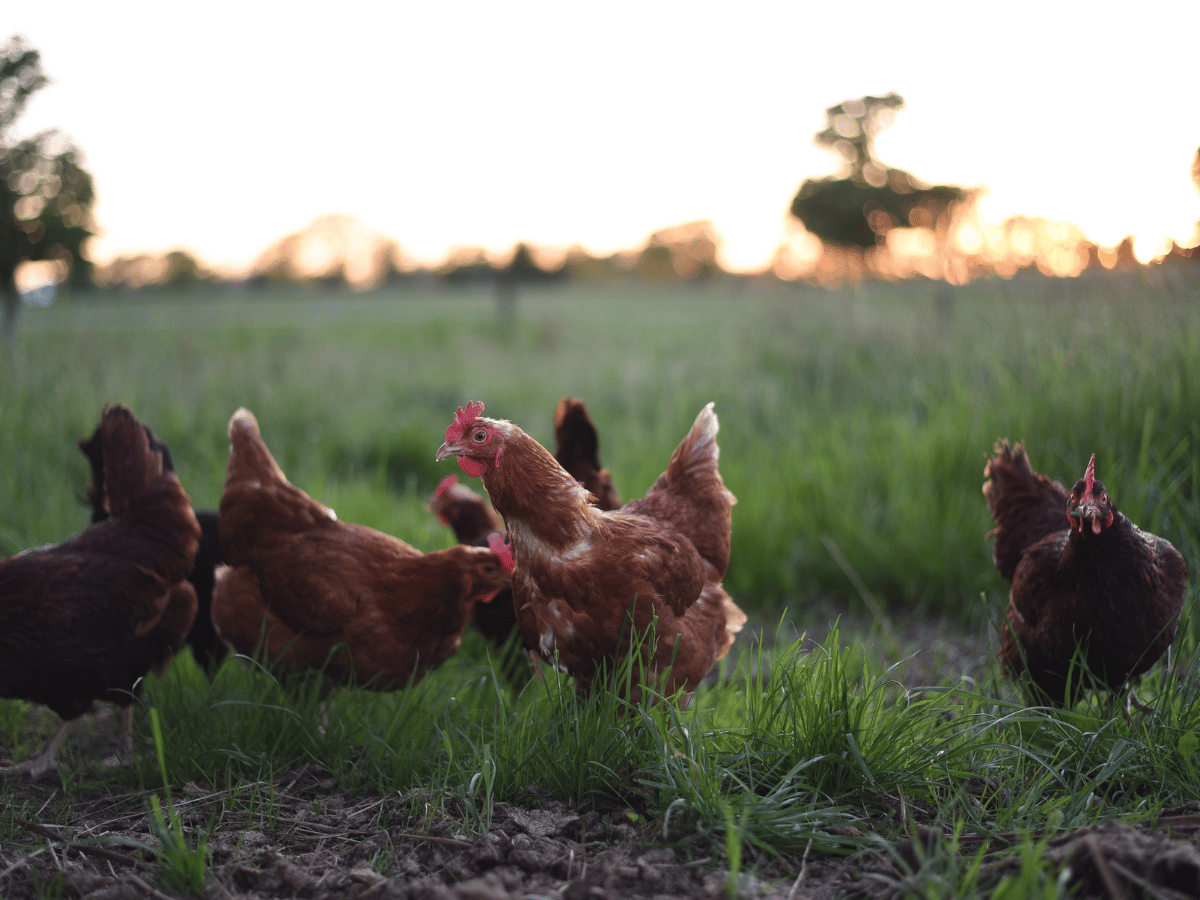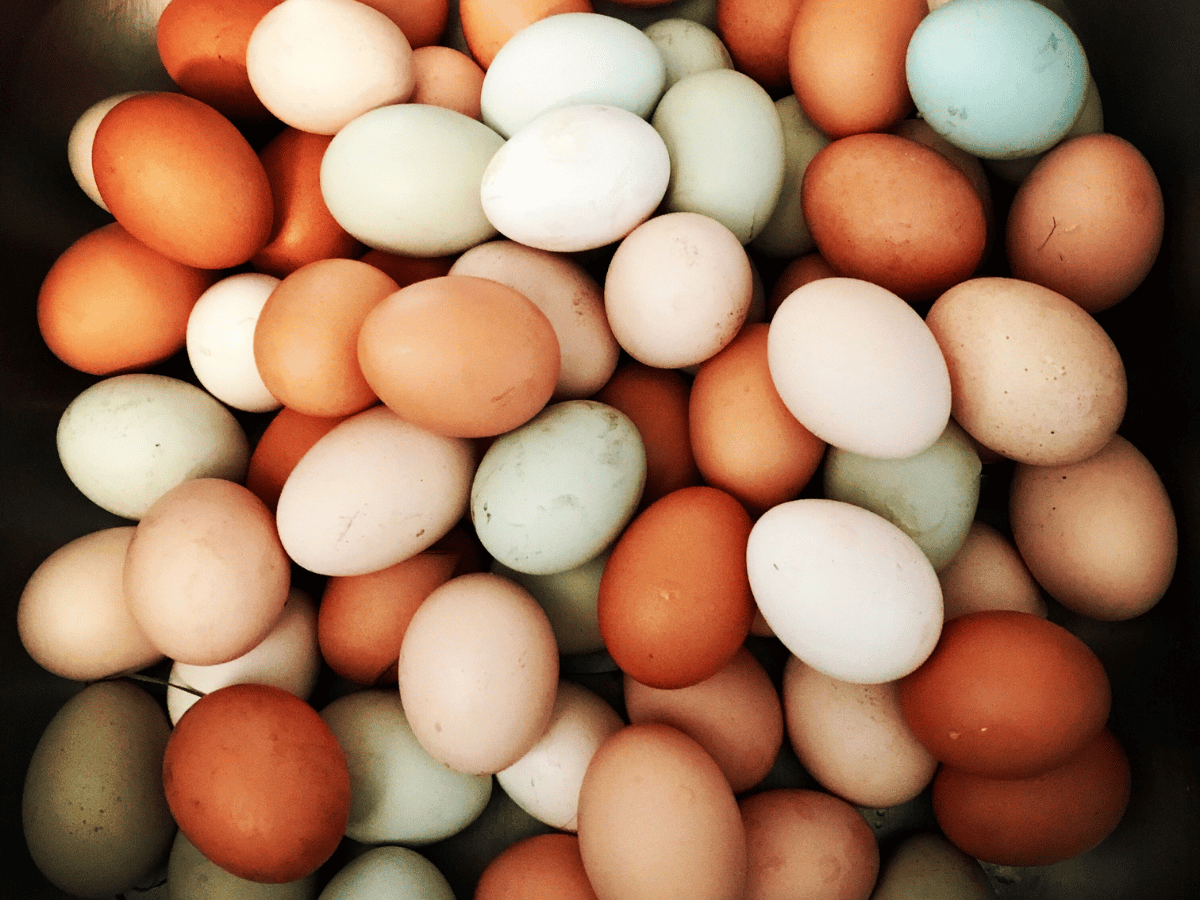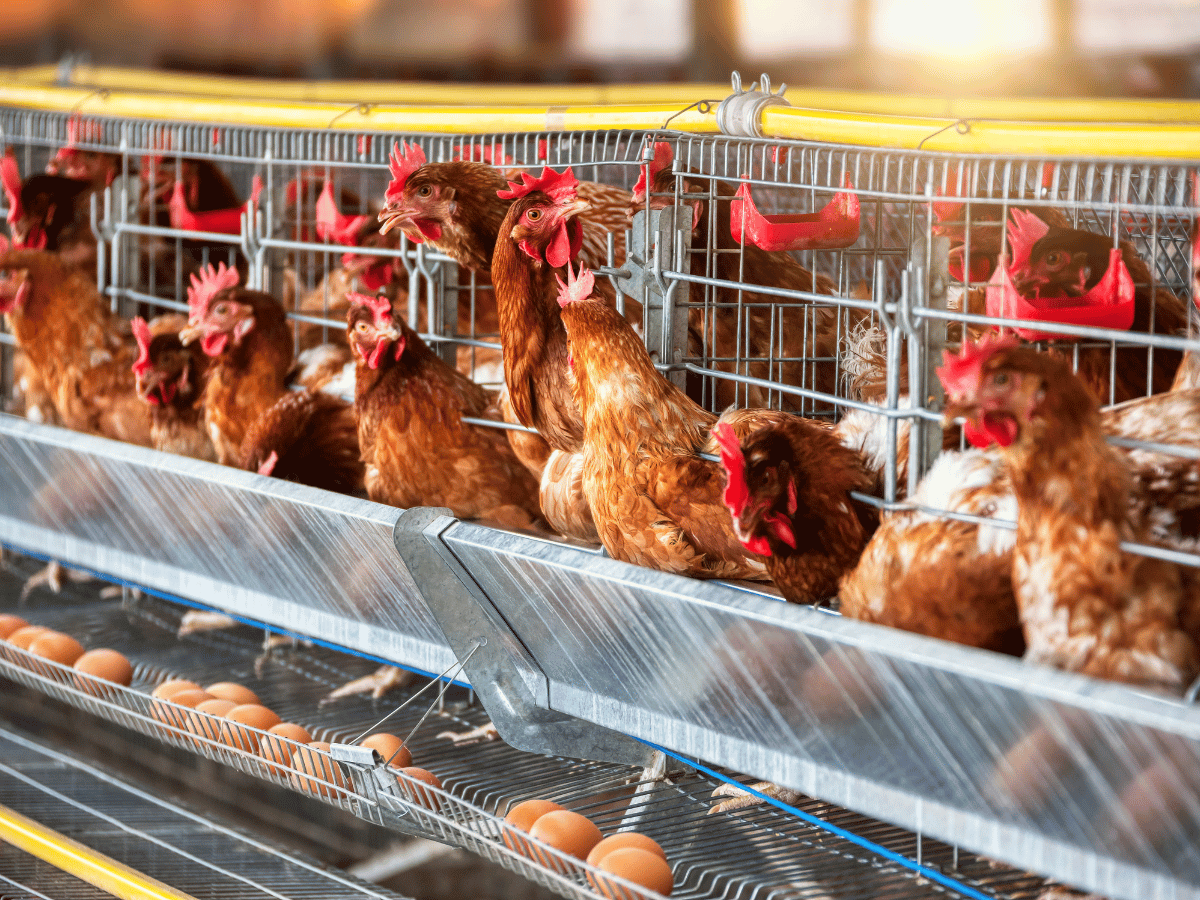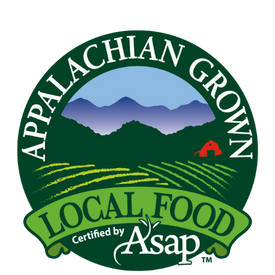Guide To Understanding Farm Eggs
posted on
June 14, 2022
So you just bought your first dozen of farm eggs? Congrats! Your taste buds (and insides) are going to thank you. Or you are considering purchasing a dozen and want to know why you should. Keep reading!

When you purchase farm fresh eggs, you might notice that something is different about them when compared to store bought eggs. Actually, you should notice several different things.
- The outside may look a little "dirty"... Surprise! Ours, like many other farm fresh eggs come unwashed. This is something we practice on our farm.
- When you crack open the egg, the yolk has a rich, yellow color and the egg whites are not runny as they are with store bought eggs.
- Once the egg is cooked thoroughly, you will notice a more rich taste than that of store bought. In a study I link from Mother Earth News, when compared to commercial eggs, free range eggs raised on pasture may contain: 1/3 less cholesterol, 1/3 less saturated fat, 2/3 more vitamin A, two times more omega-3 fatty acid, 3 times more vitamin E, and 7 times more beta carotene. If you're a nerd like me, you can read the full article here.
I will explain what we practice on our farm with our laying hens (which is probably why you came!), but I also want to go into more detail about the difference between store bought (and the labels they throw on the cartons) and farm eggs. I also wouldn't be doing a great job if I didn't mention the risk of Salmonella with all eggs.
Fun Facts About the Chickens on Our Farm
Our hens have access to pasture 24/7. This allows them to have a range of food to eat. We do provide grain, but chickens also need bugs, worms, greens and dust baths in order to stay healthy and meet their nutritional needs.
Dust baths are areas where hens literally stir up dust and dirt to clean themselves. Sounds counterproductive right? But this prevents mites and helps to keep their feathers in pristine condition.
Our hens also have a few secure coops to keep them safe from other critters, especially at night.
Chickens do not have to be trained to go into their coop at night. As long as they are familiar with the coop, once the sun starts to set you will notice they head that way!
All of our eggs are unwashed and come in a variety of sizes and colors. We do not sort eggs by color or size.

Why Many Farm Eggs Come Unwashed
Eggs have a porous shell (a clear cuticle or "bloom") that coats the outside as it leaves the chicken's body. This helps keep dust and bacteria out.
You can read more about egg anatomy here. When you wash an egg, you destroy the natural bloom on the outer part of the shell which exposes the egg to bacteria.
This is where refrigeration comes in. By refrigerating an egg after it has been washed helps to protect the egg from bacteria that may enter. The downside to washing then refrigerating is the shelf life is cut in half.
Read this interesting article from NPR about chilling eggs here.

Storing Farm Eggs
Washed Eggs
If you feel that washing is necessary when receiving your eggs, then please, wash them.
We recommend to dip the egg in a bowl of warm water (not hot), pull it our, lightly wipe clean, rinse under running water and gently dry with a clean towel.
Place these washed eggs in the fridge to last for 2-3 weeks from the date on the carton - top shelf is best.
Unwashed Eggs
If you are interested in increasing your eggs' shelf life, we recommend placing unwashed eggs in the fridge to last for 4-6 months or leaving unwashed eggs on your countertop to last for 4-6 weeks from the date on the carton.
Salmonella - What is it?
Salmonella can be found on commercially produced eggs as well as farm eggs.
Difference Between Store Bought Eggs and Farm Eggs
In addition to the above differences between store bought and farm eggs, I want to mention the cleaning process for store bought eggs.
In a Forbes article, commercial eggs are cleaned with water and a detergent (one that does not have any foreign odors) and then dried and sprayed with a chemical sanitizer to remove any remaining bacteria.
I don't know about you, but that does not sound too appetizing. Then the eggs have to be refrigerated immediately after this process to prevent any bacteria slipping into the shell.
Commercial egg producers are required to clean their eggs this way because of the housing environments the chickens live in.
Most, if not all, commercial egg producers house chickens the size of an iPad! If this sparks a nerve with you, please watch this video from the Coalition for Sustainable Egg Supply.
Because these chickens have such little room is the reason why commercial eggs are priced so cheap (IMO, you get what you pay for).
How would you like to breathe fecal dust all day? Remember when I mentioned the need for dust baths? When chickens are housed so close together, they will make their own dust baths and that will usually include all of their fecal matter. GROSS.
With all that being said, this is what leads to the different taste and texture you will find between store bought and farm eggs.

Wait, wait wait...
But the label on the carton claims that the chickens are cage free, all natural, free range with no antibiotics. You might even see a label that says they are related to Batman...
Okay maybe not, but the point I am making is that all of the above statements simply mean... well, nothing.
An NPR article claims that the above statements are essentially bogus. And from my experience, I would have to agree.
Remember when I mentioned that some chickens only have the space of an iPad? Well those commercial eggs suppliers claim that their chickens are "all natural".
Okay fine, but the label free range has to be true, right?
Wrong...
It is all a marketing scheme to make consumers think that their chickens are frolicking and pecking in a field of beautiful green grass. And yes, they can put those labels on there.
The only way you will truly know how these hens are housed and treated is by visiting. I highly recommend visiting the farm that you are purchasing your eggs from.
In my experience, most local farmers would love for you to visit and see all the hard work they put into providing nutritious food for their community.
Although, it is respectful to call first.
If you would like to visit our farm, please contact us!
What You Will Find With Our Eggs
When purchasing our eggs, you will most likely find them in a recycled egg carton.
We practice regenerative agriculture on our farm, so we reduce, reuse and recycle whenever we can.
On your carton, you will notice some things have been marked out if we are using a recycled carton (per FDA regulations). This is because we do not grade our eggs and we do not sell by the color or size.
You will find a date written in pen on your carton. This date represents when the oldest egg was laid. We recommend using the oldest eggs first and within two to three weeks of the date on the carton.
We have strategically placed the eggs so you will know which eggs to use first. The oldest eggs will be placed in the back left moving along the back row to the front row on the right. The most recently laid egg will be found in the front left. Eggs in the carton will be laid within a day or two of each other.
Once you open your carton, enjoy the different sizes and colors of these beautiful eggs.

Our favorite way to show off and store these eggs is with a spiral organizer like this one.
Want to raise your own chickens for their eggs? Check out this blog post to learn how!
Hope you enjoy our eggs as much as we do!

Last edit: 7/2023
Originally published: 3/2019





